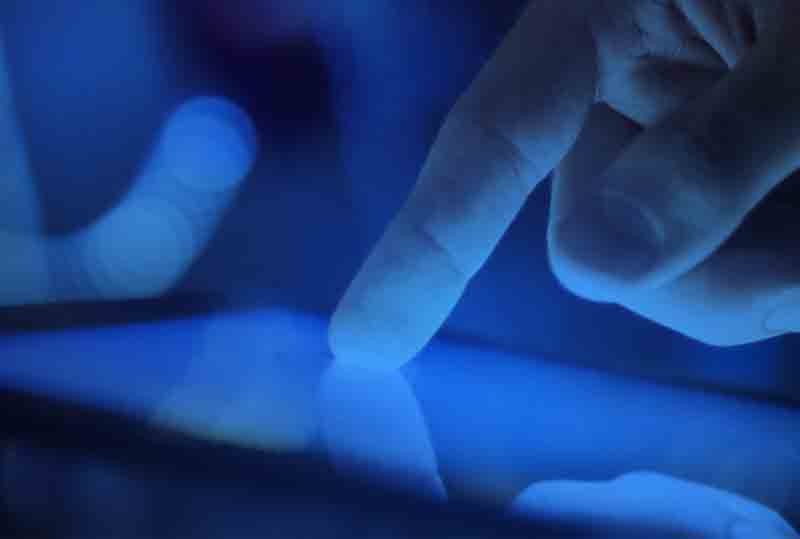How Blue Light LED from your Mobile interferes with your Sleep

Numerous studies have warned that the blue light emitted by our electronic devices affect the functioning of our brain. Nevertheless, there are many who still can not avoid the temptation to go to bed with the tablet , mobile or laptop to see another chapter of Game of Thrones or review their social networks before going to To sleep.
Now, new research developed by the University of Houston not only confirms what was already known but has quantitatively assessed the damage caused by blue light in our night routines. And the results are clear.
But first and foremost, we must be aware that the blue light is not intrinsically dangerous. We receive it naturally from the sun on a daily basis, a matter that allows our organism to increase alertness and effectively regulate our ‘biological clock.’ The latter occurs thanks to the activation of photoreceptors located in the eyes known as intrinsically photosensitive ganglion cells, which are responsible for suppressing the production of melatonin (the hormone that regulates our sleep cycle).
The problem is the misuse we make of this type of light. Being for a couple of hours or three hooked to the tablet, or Netflix produces a dramatic worsening of your rest since these devices have the ability to activate the same photoreceptors and produce a similar effect as the Sun causes in your body.
A trick to avoid this undesirable effect
The researchers at the University of Houston not only confirmed that blue light is a problem for our break but found a possible solution. To do this, they recruited 22 volunteers, who provided glasses that block this type of light. The participants, who were monitored throughout the experiment, used them three hours before bedtime with their electronic devices for two weeks. When comparing the results with the previous data, the scientists observed that the use of glasses with special filters increased the production of melatonin by 58%. What’s more, some volunteers took extra supplements of melatonin, managing to improve the percentage of their peers.
According to Lisa Ostrin, co-author of the research, “the most important conclusion of the study is that being exposed to blue light at night significantly reduces the quality of our sleep .”
So you know, if you are not able to give up your night routines and turn off the mobile, it is best to get yourself a pair of glasses that filter the blue light. If not, then listen to the song below to know the side effects of blue 🙂




